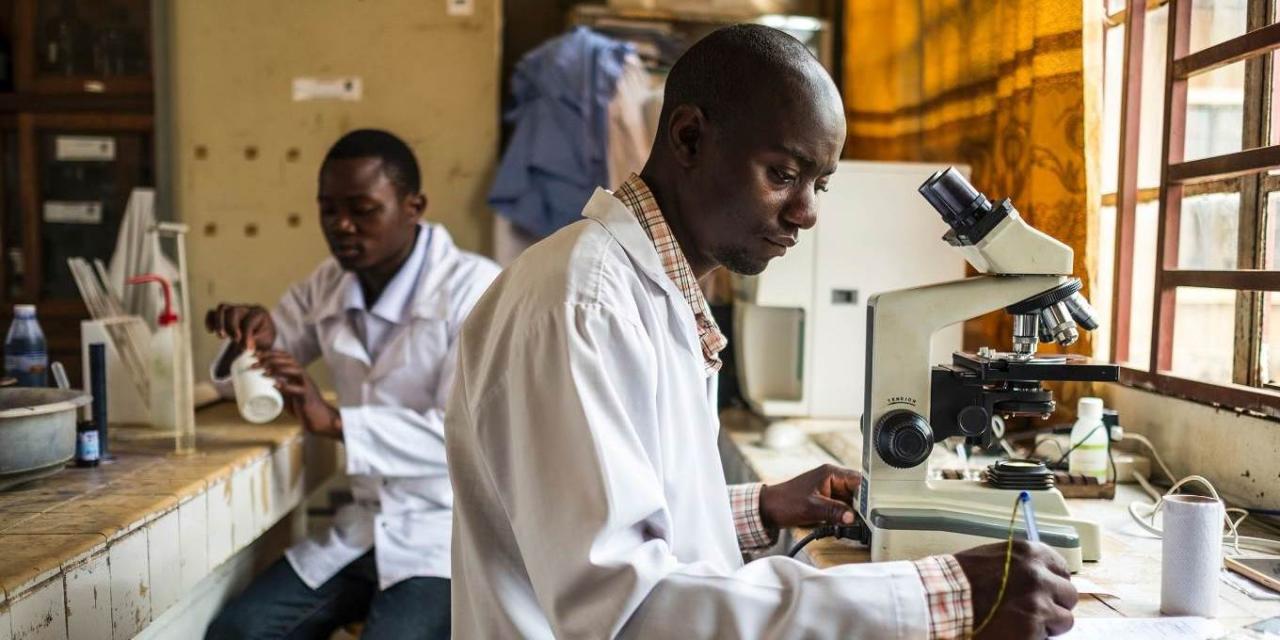Strengthening African science

By Esther Ngumbi
In late March, Africa’s leading scientists, innovators, and policymakers met in Kigali, Rwanda, to brainstorm solutions to an increasingly pressing problem: the low quality of science on the continent.
Any good leader knows that scientific discovery and innovation fuels progress, facilitates development, and can help tackle issues like food insecurity, water shortages, and climate change. And yet most African governments are failing to fund research and development adequately in their countries. According to the UNESCO Institute for Statistics, countries in Sub-Saharan Africa spend, on average, just 0.5% of GDP on research and development. In the West, the share is closer to 3%.
This disparity underscores the development challenges that Africans face. Africa is home to 15% of the world’s population and 5% of its GDP, but accounts for a paltry 1.3% of total research spending. Moreover, African inventors hold just 0.1% of the world’s patents, meaning that even when money is spent on science, innovation, and research, the findings rarely translate into solutions for the continent’s most immediate challenges.
To be sure, these trends are not universal; some African governments are investing heavily in science-led innovation. In South Africa, for example, authorities have pledged to double R&D spending by 2020 – to 1.5% of GDP. This follows a 2016 commitment by African heads of state to increase science and technology budgets to at least 1% of GDP by 2025. A handful of countries – including Kenya, Rwanda, and Senegal – are working hard to reach this funding threshold.
Africa also benefits from generous research-related aid and international support. One of the top donors, the Bill & Melinda Gates Foundation, has invested more than $450 million in African science initiatives over the last decade. Projects include a $306 million program to boost crop yieldsand a $62.5 million grant to improve health outcomes. These and other funding streams have helped African researchers develop drought-resistant crops, produce vaccines for infectious diseases like Ebola, and expand opportunities for science and technology education.
Unfortunately, many African governments lack the resources to fund programs that could build on these gains. Simply put, a new, more collaborative approach to African science is urgently needed.
Africa’s leaders have pooled their science resources before. In 2003, the African Union and the New Partnership for Africa’s Development began implementing a continent-wide strategy “to develop and use science and technology for the socioeconomic transformation of the continent and its integration into the world economy.” It was an ambitious goal that yielded early results. Between 2005 and 2014, continent-wide spending on R&D increased, while research output more than doubled in many countries.
Since then, however, progress has stalled. The recent meeting in Rwanda, hosted by President Paul Kagame and organized by the Next Einstein Forum, was designed to help get the agenda back on track. But summits are only part of the solution; governments must also commit to improving research quality, and they can start by focusing attention on three key areas.
First, Africa’s leaders must engage with CEOs, philanthropists, and donors who understand the long-term value of investing in science. Innovation is expensive, and seed money will be needed to help strengthen the continent’s scientific capacity.
Second, African universities and institutions should align their research agendas with national and regional goals. For example, given that one of Africa’s most pressing challenges is feeding its growing population, schools specializing in agricultural research should ensure that their work contributes to solutions.
Last but not least, countries should encourage entrepreneurship within research organizations. One way to do this is by establishing commercialization offices, which could help scientists bring their research to market. Scientists everywhere need help navigating bureaucracy when turning an idea into a commercial venture, and this process is particularly challenging in a region where R&D pipelines are in their infancy.
Boosting Africa’s scientific capabilities will require the continent’s leaders to do more than ask tough questions at summits; they must also allocate more funding and forge new partnerships. To overcome Africa’s human development challenges, African governments must invest in the people who can overcome them.
Copyright: Project Syndicate: Strengthening African science
---
Follow us on Twitter @AzerNewsAz
Here we are to serve you with news right now. It does not cost much, but worth your attention.
Choose to support open, independent, quality journalism and subscribe on a monthly basis.
By subscribing to our online newspaper, you can have full digital access to all news, analysis, and much more.
You can also follow AzerNEWS on Twitter @AzerNewsAz or Facebook @AzerNewsNewspaper
Thank you!
